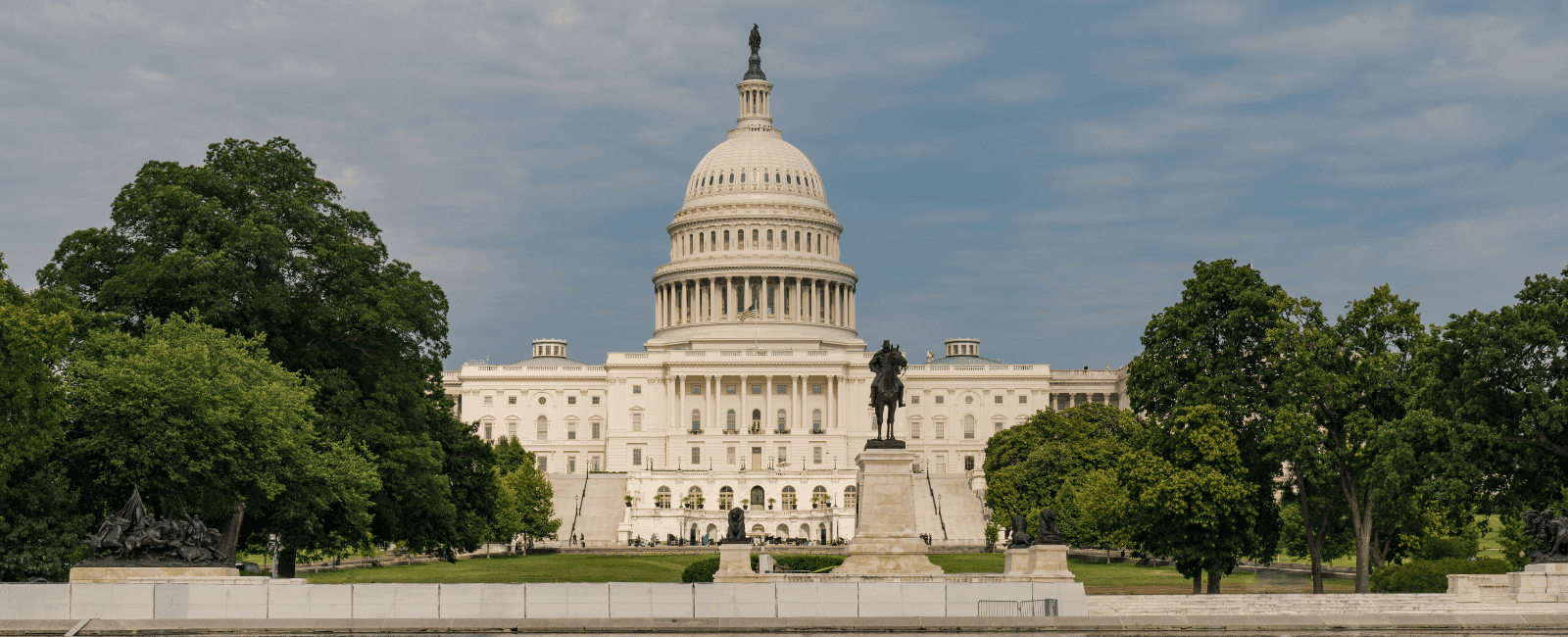

Lately, psychedelic legislation has been receiving a lot of attention thanks to new science pointing to the potential therapeutic benefits of these substances. This shift has been causing a stir in national discourse and political opinions. Several bipartisan lawmakers have shown support for more research and decriminalization, as they view psychedelics as a potential solution for addressing various mental health conditions like depression, PTSD, and substance use disorders. Others question whether psychedelic medicine should be popularized so quickly and are concerned about such a significant shift in drug policy. Nonetheless, the discourse continues to evolve as growing research and changing public opinion are changing how we once viewed these drugs.
Bipartisan response in Congress
Congress has historically viewed psychedelics in a negative light due to their criminalization during the Controlled Substances Act of 1971 and the prevailing societal stigmas that portrayed these substances in a demonized manner. However, these ideas have been gradually changing due to increased scientific studies showcasing psychedelic medicine’s therapeutic potential. Both psilocybin and methylenedioxymethamphetamine (MDMA) have been appointed by the Food and Drug Administration (FDA) as “breakthrough therapies” due to their success in managing treatment-resistant depression and Post Traumatic Stress Disorder (PTSD) in clinical trials.
A bipartisan coalition led by Rep. Alexandria Ocasio-Cortez (D-NY) and Rep. Dan Crenshaw (R-TX) is currently fighting to change psychedelic policies. These efforts underscore a broader trend of increasing support across party lines for the reevaluation of these substances. Ocasio-Cortez, in particular, has been trying to remove federal limits and eliminate restrictions that impede the further scientific research of psychedelics since 2019. This bipartisan effort has already seen success in the passing of psychedelic-related amendments. Last month, Crenshaw proposed a bill instructing the defense secretary to allocate grants for advancing research on the therapeutic use of psychedelics for treating PTSD and traumatic brain injuries among active duty service members. Ocasio-Cortez is among the five Democratic co-sponsors of the bill, along with seven other co-sponsors from the Republican party.
Recent developments and provisions in psychedelic legislation
Recently, the coalition was notified that they stood on the brink of a bipartisan victory in the Republican-controlled House. The efforts of Crenshaw and Ocasio-Cortez led to the inclusion of a provision in this year’s National Defense Authorization Act (NDAA), a crucial legislation with the Defense Department’s annual budget. The Secretary of Defense has been directed to conduct a clinical study utilizing psychedelics in military treatment facilities. Since the bill was not included in the text as an amendment, its chances of being enacted into law are increased.
Similarly, another notable change already included in the bill was proposed by Rep. Morgan Luttrell (R-TX), requiring the defense secretary to conduct a clinical trial on the therapeutic potential of psychedelic drugs for active duty service members with PTSD, traumatic brain injury or chronic traumatic encephalopathy. The trial is required to involve MDMA, psilocybin, ibogaine, or DMT.
U.S. lawmakers from both parties have been considering using the defense bill to pass various drug policy reforms. Numerous psychedelic and cannabis-related amendments have been filed in the House Rules Committee for the NDAA:
Reps. Madeleine Dean (D-PA), Nancy Mace (R-SC), Bill Johnson (R-OH), Jasmine Crockett (D-TX), and Earl Blumenauer (D-OR) have requested the DEA to move drugs that have received breakthrough therapy designations from Schedule I to Schedule II in the Controlled Substances Act (CSA). This would boost research opportunities as the substances would receive more federal funding and support if moved down in their drug classification schedule.
Rep. Matt Gaetz (R-FL) requests the prohibition of marijuana drug testing in military enlistment requirements.
Reps. Dan Crenshaw (R-TX) and Morgan Luttrell (R-TX) want to expand the bill’s current psychedelic research provisions to create a Department of Defense funding program to examine the therapeutic efficiency of treating PTSD and traumatic brain injuries with psychedelic substances. Crenshaw is also sponsoring a separate law that aims for the same goal.
Reps. Brian Mast (R-FL), Barbara Lee (D-CA), Dave Joyce (R-OH), and Earl Blumenauer (D-OR) want to allow doctors from the Department of Veterans Affairs (VA) to recommend medical marijuana to veterans in states that have legalized cannabis for health reasons.
Rep. Rashida Tlaib (D-MI) issued an amendment that would order the defense department to share its research results on psychedelic drug trials with the VA, Department of Health and Human Services (HHS), and any relevant congressional committees. The law currently states that they only have to share results with the House Armed Services Committee.
President Biden’s position
Despite the overwhelming bipartisan support for psychedelic legislation, Ocasio-Cortez has expressed concerns about President Biden’s approach to psychedelic substance legislation. In the past, Biden had suggested that cannabis could be a “gateway drug,” and there is not yet enough evidence to legalize it on a federal level. Due to his past rhetoric questioning the safety and legality of medical marijuana, Ocasio-Cortez is unsure how the president will react to policy changes around psychedelics. Although she fears Biden may derail bipartisan efforts, the New York representative continues to advocate for policy change around psychedelics.
Regardless of Biden’s previous stances on cannabis, he appears to have differing views towards psychedelic research and therapy.
President Biden’s younger brother, Frank Biden, has expressed support for psychedelic-assisted therapy. As a recovering alcoholic, Frank Biden has hope for these potential treatments for addiction. Last week, in an interview with SiriusXM, he claimed that many psychedelic substances such as LSD, ketamine, and ayahuasca can help treat mental health conditions with “magnificent results.” When asked about his older brother’s stance on psychedelics, Frank says President Biden is “very open-minded,” adding, “The question is, is the world, is the U.S., ready for this?”
Frank’s comments suggest that the President may be more open about psychedelic therapies than previously thought. The President’s willingness to consider new scientific evidence about these substances could help accelerate legislative changes and shift public perception further. However, it’s important to note that although the President’s personal stance may be influential, broader changes in legislation and regulations will also require cooperation and agreement across various government departments and agencies.
President Biden has not yet spoken on the topic of psychedelics publicly. So far, his drug policy has been primarily about granting pardons to individuals with prior marijuana-related offenses and conducting an administrative review of cannabis scheduling on a federal level. His administration has also been working towards harm reduction strategies concerning other drugs.
Federal agency involvements
When asked about how the U.S. Health and Human Services (HHS) viewed psychedelics legislation; Secretary Xavier Becerra told Marijuana Moment that it is best to see what the National Institute on Drug Abuse (NIDA) has to say. NIDA has been at the forefront of psychedelics medicine and actively promoting funding for studying the scientific and legal aspects of psychedelics.
In a May Senate committee hearing, Nora Volkow, the director of NIDA, expressed that there’s growing evidence and clinical research suggesting the therapeutic potential of these substances for treating certain health conditions. She notes that the subject of psychedelic therapy holds “great interest” for scientists.
Furthering the legislative efforts of other governmental agencies, the FDA has recently released a draft guidance with recommendations to sponsors and researchers who are developing therapeutic psychedelic drugs. The draft recognizes these substances’ “initial promise” as potential treatments. Though the guidance has not yet been finalized, it’s an essential step for providing researchers with the general factors that should be considered when studying psychedelic medicines and therapies. It also signals the FDA’s willingness to explore the potential of psychedelics.
Public opinion and the future of psychedelic therapy
The future of psychedelic legislation is closely tied to developments in Congress and growing research. However, public opinion plays a considerable role in legislative changes, and many Americans have been shifting toward the support of psychedelic substances. According to recent polling data, the majority of U.S. voters support the legalization of certain psychedelics for mental health treatment, and half of Americans believe psychedelics should be decriminalized for personal use. This increasing support indicates a change in perspective, largely driven by the emerging body of research pointing to the therapeutic benefits of these substances.
With furthering bipartisan legislation and increasing support from governmental agencies and the public, clear guidelines and extensive education programs must be implemented before regulating psychedelics on a federal level. Healthcare professionals, policymakers, and the public will need guidance and training to ensure a safe and smooth change in our drug policy.


